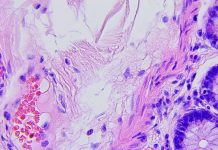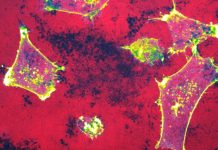Cecilia Van Cauwenberghe from Frost & Sullivan’s TechCasting Group, describes the main focus of non-melanoma skin cancer, including its steadily rising incidence in the UK
Non-melanoma skin cancer (NMSC), also known as keratinocyte cancer, reaches over 200,000 cases diagnosed per year in the UK alone (Venables et al., 2019), with a steadily rising incidence. Basal cell carcinomas (BCC) and squamous cell carcinoma (SCC), account for about 99% of all NMSC represent most of the newly diagnosed cases of NMSC. Investigators working at the University Hospital Coventry & Warwickshire, UK (Walker and Hardwicke, 2021) emphasise that although genetic predisposition and specific premalignant conditions are relevant risk factors, DNA damage from cumulative lifetime exposure to solar radiation constitutes the major cause of NMSC incidence increment with advancing age.
Furthermore, a team of medical scientists working at the Department of Proliferative Diseases, Nicolaus Copernicus Multidisciplinary Centre for Oncology and Traumatology, in Łódź, Poland, retrospectively collected, processed, and analysed data on the incidence of separate diagnosed cases of NMSC across seven sites in this country. The data came from the Polish National Health Fund database and showed an increasing trend of NMSC diagnoses between 1999 and 2019.
The purpose of the study was to assess the incidence of primary BCC and SCC and discover epidemiological trends and features of tumours (Ciążyńska et al., 2021). The study revealed skin face as the most frequent site of the lesions. In addition, the analysis reflected the existence of an increasing trend in the incidence of truncal tumours in younger patients. In histopathological subtypes, there is a predominance of nodular BCC, followed by superficial and infiltrative BCC, among all types of NMSC over these 12 years in Central Europe. According to the authors, the depicted epidemiological trends of NMSC reflect an essential need to control the rising incidence of NMSC to develop the best-suited therapy for those common skin cancers, based on an effective primary preventative skin cancer strategy from health services.
Therapeutic landscape: Immunotherapy as the standard of care
The therapeutic landscape for NMSC found some progress with developing effective and targeted immunotherapies. The regulatory framework in both the U.S. and Europe highlights the role of immunotherapy in managing advanced cutaneous carcinomas. Reflected in the pace of regulatory approvals, for instance, the U.S. Food and Drug Administration (FDA) approved several immunotherapies to treat locally advanced and metastatic cutaneous squamous cell carcinoma, Merkel cell carcinoma and basal cell carcinoma.
Moreover, there are more recent approvals for other forms of NMSC, including microsatellites. This trend is expanding as more studies support the role of immunotherapy in the neoadjuvant, adjuvant, and refractory settings arise. A team of researchers from the Division of Hematology/Oncology at the Department of Medicine of the Massachusetts General Hospital, Harvard Medical School, U.S., published an article with an exhaustive list of all the approved immunotherapies for NMSC. According to the authors, immunotherapy is not only effective to treat NMSC, but it is also raising the standard of care for several advanced NMSC where it is not feasible to remove via surgery and radiation (Shalhout et al., 2021).
Supporting this evidence, researchers at the Department of Burn and Plastic Surgery, West China Hospital of Sichuan University, systematically searched PubMed, Embase, Medline, Web of Science, and Cochrane Library from inception to May 2021 to evaluate the role of immunotherapies and establish relationships between these treatments and some types of autoimmune diseases. In the opinion of the authors, despite this, there is some evidence of greater risk of NMSC in patients suffering from autoimmune diseases such as rheumatoid arthritis and psoriasis (Liu et al., 2021), and immunotherapy is playing an increasingly critical role in the management of advanced disease and is considered to be the standard of care for upfront systemic therapy in locally advanced and unresectable types of NMSC.
Acknowledgements
I want to thank all contributors from the industry involved with developing and delivering this article from Frost & Sullivan.
Further reading
- Ciążyńska, M., Kamińska-Winciorek, G., Lange, D., Lewandowski, B., Reich, A., Sławińska, M., Pabianek, M., Szczepaniak, K., Hankiewicz, A., Ułańska, M. and Morawiec, J., 2021. The incidence and clinical analysis of non-melanoma skin cancer. Scientific Reports, 11(1), pp.1-10.
- Liu, R., Wan, Q., Zhao, R., Xiao, H., Cen, Y. and Xu, X., 2021. Risk of non-melanoma skin cancer with biological therapy in common inflammatory diseases: a systemic review and meta-analysis. Cancer cell international, 21(1), pp.1-17.
- Shalhout, S.Z., Emerick, K.S., Kaufman, H.L. and Miller, D.M., 2021. Immunotherapy for Non-melanoma Skin Cancer. Current oncology reports, 23(11), pp.1-10.
- Venables, Z.C., Nijsten, T., Wong, K.F., Autier, P., Broggio, J., Deas, A., Harwood, C.A., Hollestein, L.M., Langan, S.M., Morgan, E. and Proby, C.M., 2019. Epidemiology of basal and cutaneous squamous cell carcinoma in the UK 2013–15: a cohort study. British Journal of Dermatology, 181(3), pp.474-482.
- Walker, H.S. and Hardwicke, J., 2021. Non-melanoma skin cancer. Surgery (Oxford).











